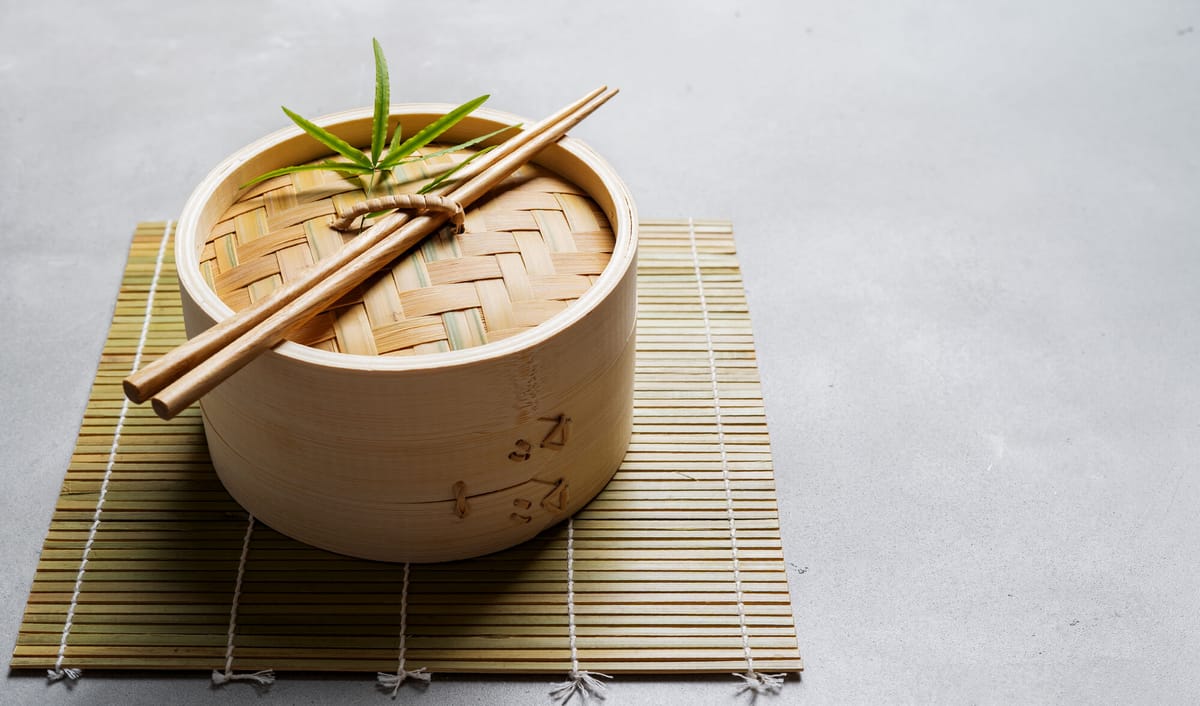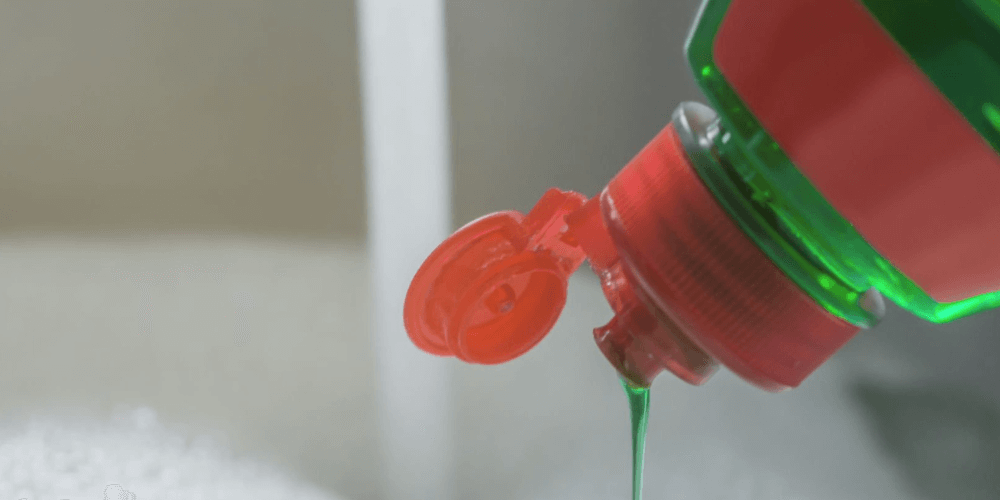The kitchen is the heart of the home, and the dishes we use play a significant role in its functionality and aesthetic. While traditional dinnerware materials like ceramic and porcelain have served us well, a growing awareness of sustainability is prompting a shift towards eco-friendly alternatives. This article explores several beautiful and durable dishware materials that are kind to both your home and the planet.
In This Article
- The Allure of Sustainable Materials
- Exploring Sustainable Options
- Choosing the Perfect Material for Your Kitchen
- Beyond the Dishware: Sustainable Kitchen Essentials
The Allure of Sustainable Materials
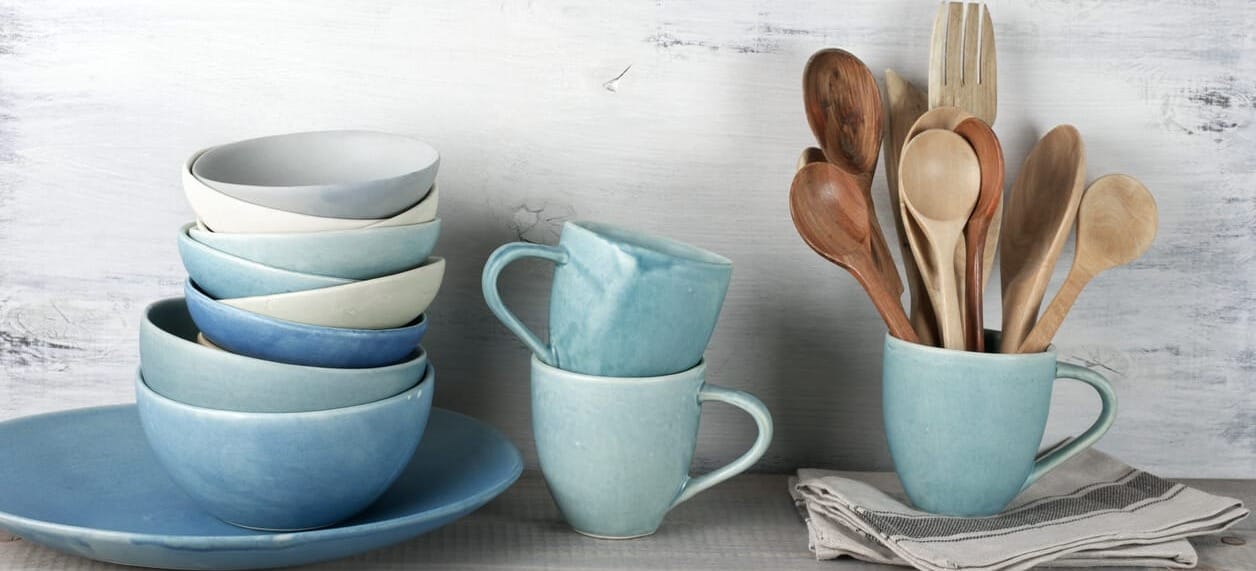
Today's environmentally aware consumers are extending their mindfulness into the heart of the home: the kitchen. Sustainable dishware materials offer a chance to seamlessly blend your values with your surroundings. By choosing eco-friendly options, you can create a beautiful and functional kitchen that reflects your commitment to a healthy planet.
However, functionality remains paramount. Sustainable materials go beyond just being kind to the environment; they also need to be durable warriors capable of withstanding the everyday wear and tear of a busy kitchen. This section will explore some stunning and long-lasting options that can elevate your kitchen's aesthetic while minimizing your environmental impact.
Exploring Sustainable Options
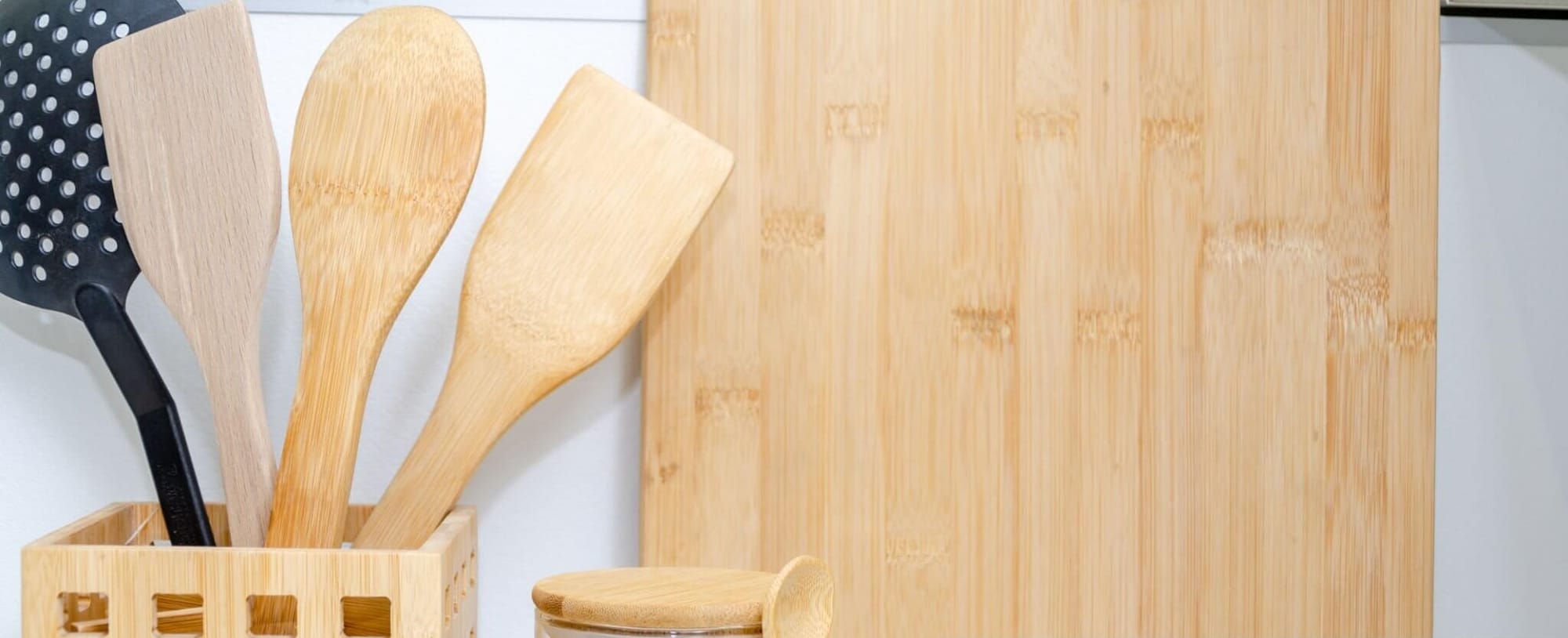
Beyond their environmental benefits, sustainable dishware materials offer a variety of aesthetic advantages to elevate your kitchen. Here, we explore some popular options, highlighting their unique characteristics:
Bamboo
- Sustainable Superstar: Bamboo is a rapidly renewable resource, making it a fantastic eco-friendly choice. It grows quickly and requires minimal resources, minimizing its environmental footprint.
- Lightweight Charm: Bamboo plates, bowls, and cutlery are known for their lightness, making them easy to handle and store. This is perfect for those who appreciate a touch of elegance without the weight.
- Aesthetics with Potential Limitations: Bamboo offers a natural beauty that complements various kitchen styles. However, it's important to note that some bamboo dishware might not be dishwasher-safe and could be prone to warping if not properly cared for.
Recycled Glass
- Eco-Conscious Choice: Recycled glass dishware gives discarded glass a new lease on life, reducing waste and promoting sustainability in your kitchen.
- Versatility and Style: Recycled glass comes in a wide variety of shapes, sizes, and colors, offering endless possibilities to match your kitchen's aesthetic. From sleek and modern to vibrantly colored, you can find recycled glass dishware to suit any taste.
- Durable and Easy Care: Recycled glass is known for its durability and resistance to scratches and stains. Plus, it's typically dishwasher-safe, making it a convenient choice for everyday use.
Reclaimed Wood
- Unique Aesthetic Appeal: Reclaimed wood brings a touch of rustic charm and warmth to your kitchen. The natural variations in the wood grain create unique pieces that tell a story and add a touch of character.
- Built to Last: Reclaimed wood is known for its exceptional durability and can last for generations with proper care.
- Care and Maintenance Considerations: While highly durable, reclaimed wood requires special care. Regular oiling or waxing might be necessary to maintain its beauty and prevent cracks.
Choosing the Perfect Material for Your Kitchen
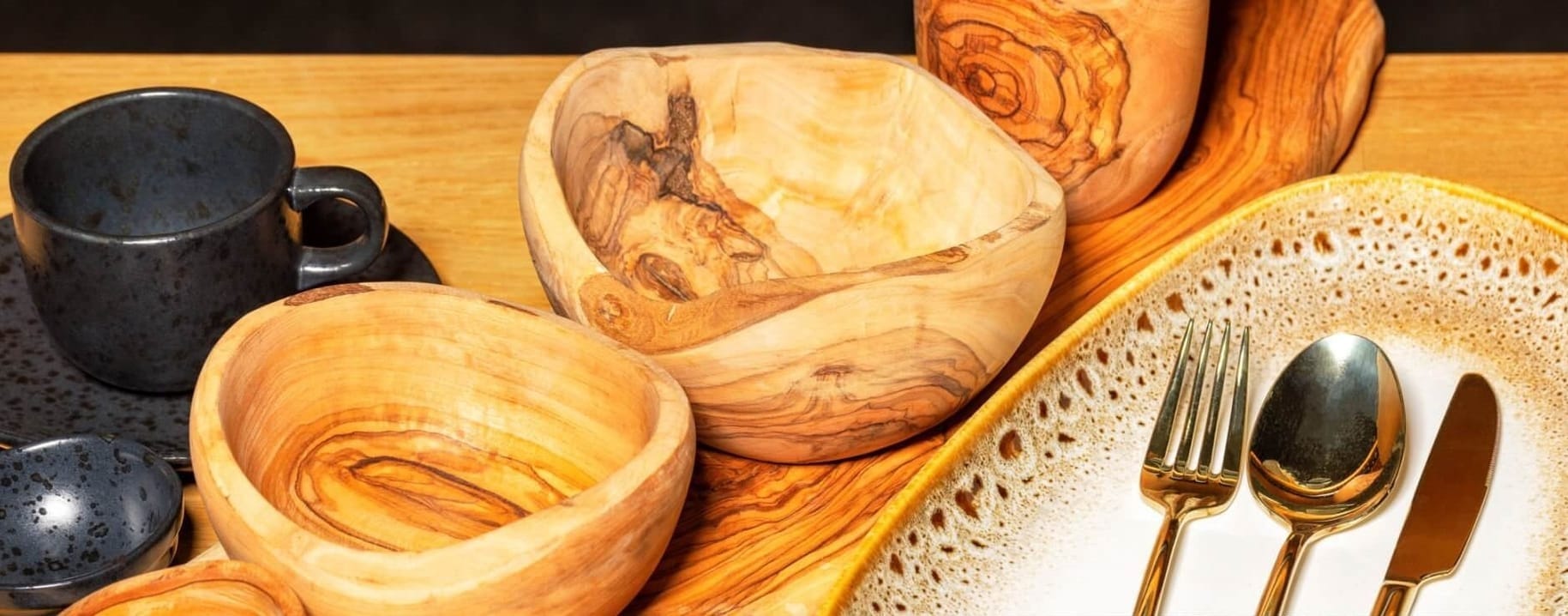
While the beauty and sustainability of these materials are undeniable, selecting the perfect option for your kitchen requires considering a few factors:
Cooking and Serving Style:
- Do you frequently cook hot dishes? Opt for materials like recycled glass or reclaimed wood that can handle heat well.
- Do you prefer light and easy meals? Bamboo's lightweight nature might be ideal.
- Consider how you serve food. Reclaimed wood platters can add a unique touch for charcuterie boards, while recycled glass bowls are perfect for salads or snacks.
Kitchen's Aesthetic:
- Match the material's style to your existing décor. Bamboo complements a modern or minimalist kitchen, while reclaimed wood adds warmth to a rustic setting. Recycled glass offers versatility, allowing you to choose colors and shapes that match your kitchen's theme.
Personal Preferences:
- Do you prioritize ease of care? Recycled glass and some bamboo options are dishwasher-safe. Reclaimed wood might require more maintenance.
- Consider weight. Bamboo is lightweight, while reclaimed wood can be heavier. Choose a material that's comfortable for you to handle.
Ultimately, the perfect material is the one that aligns with your cooking style, kitchen aesthetic, and personal preferences.
Beyond the Dishware: Sustainable Kitchen Essentials
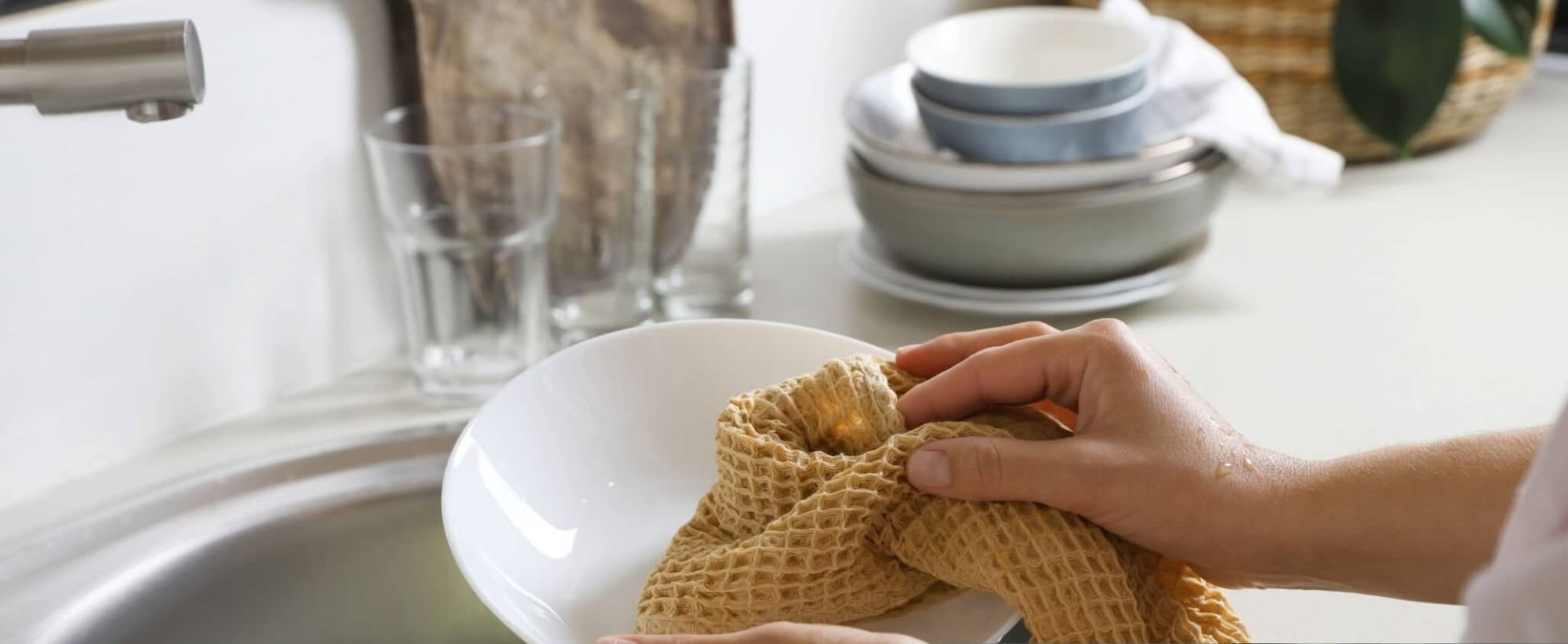
Sustainable dishware is a fantastic first step towards an eco-friendly kitchen, but it's just the beginning! Here are some additional sustainable essentials you can incorporate alongside your beautiful new plates and bowls:
- Reusable Storage Containers: Ditch the plastic wrap and invest in a set of reusable storage containers. These come in various sizes and materials like glass, bamboo, or stainless steel. They're perfect for storing leftovers, packing lunches, and keeping food fresh without relying on single-use plastics.
- Natural Fiber Dish Cloths and Sponges: Swap out those disposable sponges for eco-friendly alternatives. Natural fiber dish cloths made from cotton, cellulose, or bamboo are not only effective at cleaning but also biodegradable and machine washable. Similarly, natural sponges harvested from loofah plants offer a sustainable and surprisingly effective cleaning option.
- Compostable Trash Bags: Even the most eco-conscious kitchens generate some waste. However, you can minimize your environmental impact even here. Opt for compostable trash bags made from plant-based materials like corn starch or cellulose. These bags break down quickly in compost piles, turning food scraps and yard waste into nutrient-rich fertilizer.
Embrace Sustainability
Sustainable dishware isn't just about reducing your environmental impact, it's about creating a beautiful and functional kitchen that reflects your values. With a variety of stunning and durable materials like bamboo, recycled glass, and reclaimed wood at your disposal, you can make a conscious choice for the planet without sacrificing style or functionality.
Remember, the perfect dishware goes beyond aesthetics. Consider your cooking style, kitchen décor, and personal preferences when making your selection. Don't be afraid to mix and match materials to create a unique collection that speaks to you.
But sustainable living goes beyond your dishes! Explore reusable storage containers, natural fiber dish cloths, and compostable trash bags to take your eco-friendly kitchen to the next level. By making small changes in your kitchen, you can contribute to a greener future, one plate at a time.
